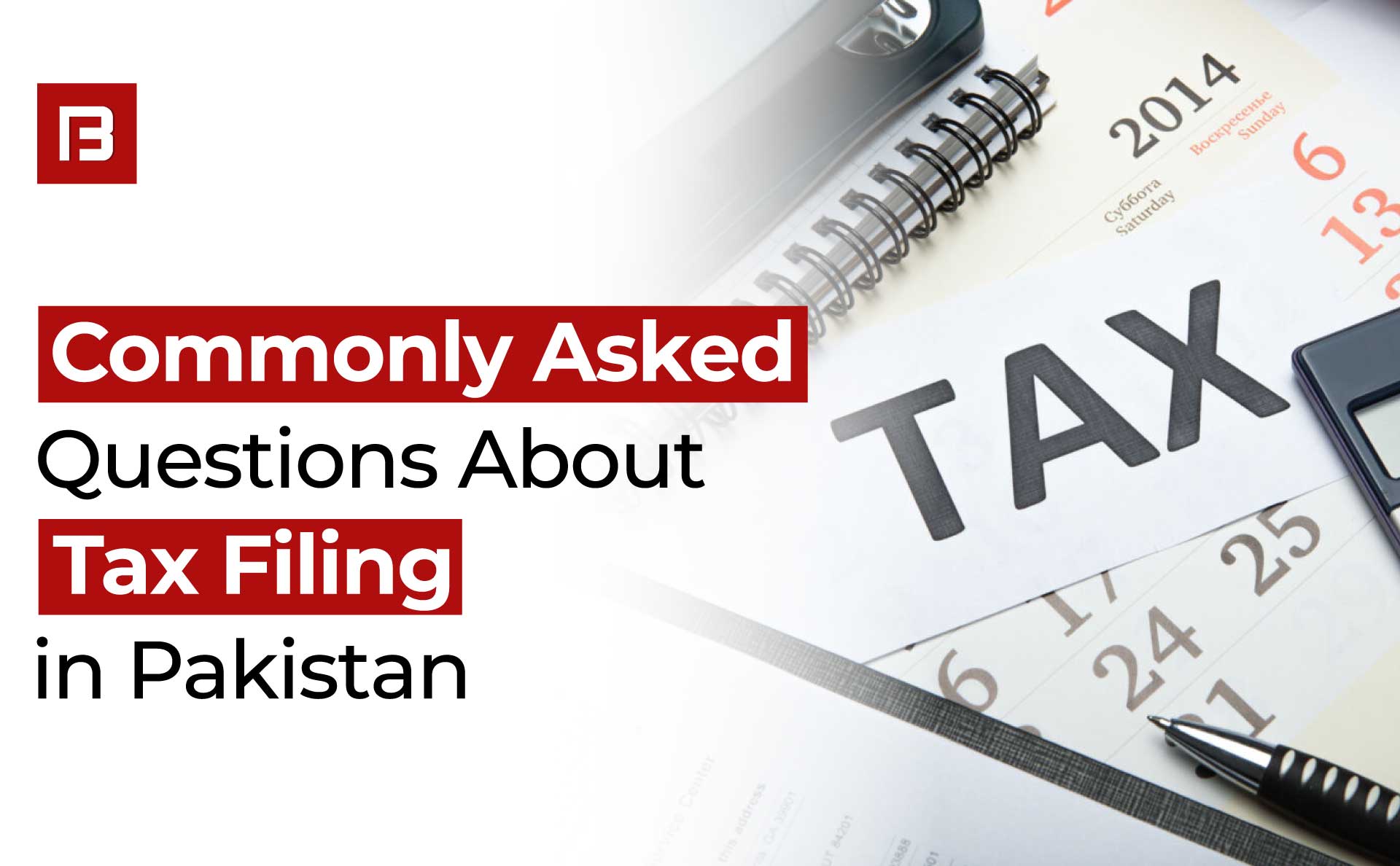Commonly Asked Questions About Tax Filing in Pakistan

Tax Filing is a legal obligation, an important responsibility, and a civic duty for every citizen of Pakistan who earns a taxable income.
Many people in Pakistan are either unaware or confused, or avoid taking advantage of tax filing. Tax filing documents the economy and is a factor in boosting the revenue of any country.
Timely and accurately filing of tax returns can help you avoid fines, penalties, and legal difficulties. You can also obtain a tax refund if you are eligible for it.
Tax filing season can be problematic for many individuals and businesses in Pakistan. With complex regulations and changing rules, having a broader horizon of relevant questions would be awesome.
In this blog post, we will discuss some of the most frequently asked questions regarding tax filing in Pakistan. This will set a direction for you in recognizing the worth of tax filing.
1. Who Needs to File Taxes in Pakistan?
Every individual earning an income above a certain threshold is required to file income tax returns. The particular threshold depends upon the earning potential of the taxpayer. For instance, the annual taxable income threshold for salaried individuals is over Rs. 600,000.
2. Which Documents Are Required for Tax Filing?
Individuals require a Computerized National Identity Card (CNIC), salary statement, bank statement, property documents, and any investment details they have made. Business owners are required to provide further documents including profit and loss statements, balance sheets, and tax deduction certificates.
3. How Can I File Taxes Online?
Filing taxes online has become very common in Pakistan. Befiler is an online tax filing and compliance portal, where individuals and business owners can file their taxes digitally easily in a few minutes. All you need is to sign up, follow the process, and pay the required fees. You are done now.
4. When Is the Deadline for Filing Taxes?
In Pakistan, the government typically sets the tax returns filing due date on the 30th of September. However, the deadline gets an extension of up to 1 month based on the government approach.
5. What Are the Fines for Late Filing?
Late filing the tax returns can result in the imposition of fines. The amount of fines depends upon the delay time period and unpaid tax. Even if you don’t have any taxable income, it’s still important to file your tax forms on time to avoid fines.
6. Which of the Tax Deductions and Credits Available to Filers?
Individuals can obtain benefits of tax deductions on charitable donations, medical expenses, and contributions to pension funds.
Business owners can obtain benefits of tax credits on research & development, employee training, and exports.
It is advisable to seek a tax professional’s guidance to examine all of your options.
7. How Can I Check the Status of My Tax Returns?
After filing your tax returns, you can use Befiler’s ATL status checker to check the status of your tax returns.
Your status will show either you have become an active filer or you are still an inactive filer.
8. What Should I Do If I Make a Mistake on My Tax Returns?
If you make a mistake on your tax returns, and it comes to your knowledge, then it’s critical to correct it as soon as possible.
In other cases, if you’ve submitted a wrong filing, then you can revise it within 60 days.
If you have obtained a proper know-how of process and requirements, then filing tax returns won’t be a hectic task for you.
By staying informed, having the necessary documents, and timely filing tax returns can fulfill your tax obligations and relieve you of unwanted fines.
Do you still need clarification? Want some more information? Just text or call us at 021-38228222. Befiler’s professionals will provide you a personalized guidance tailored to your unique needs.

